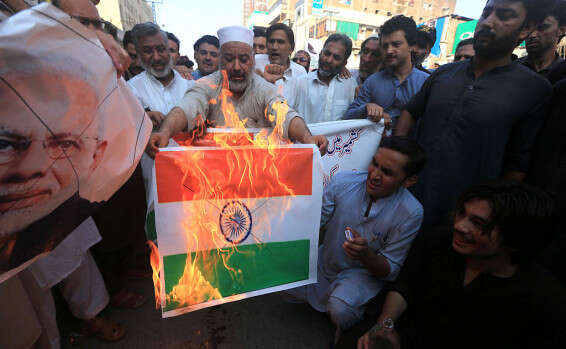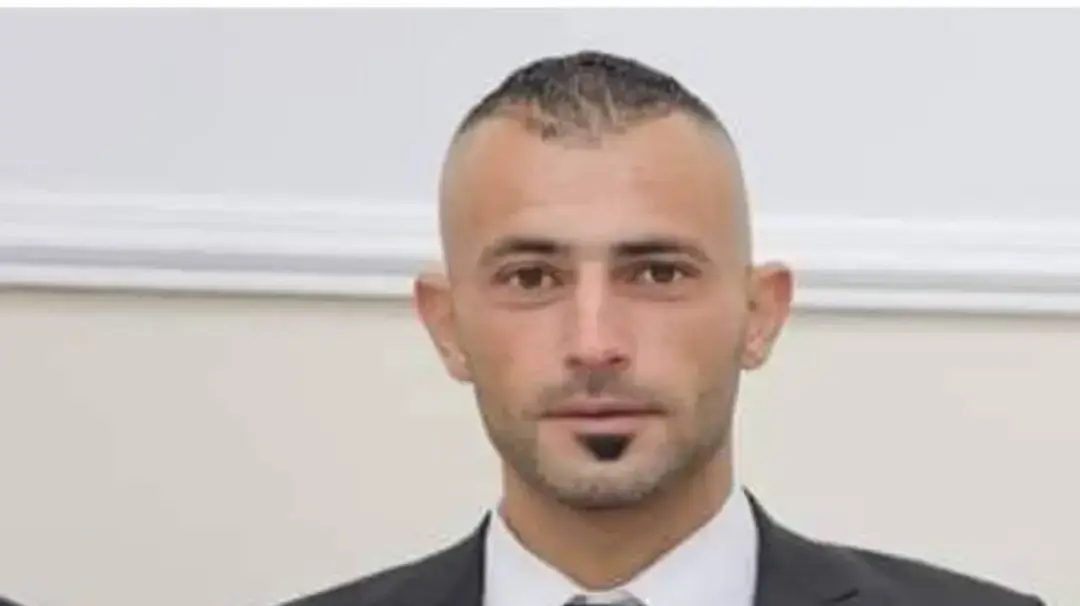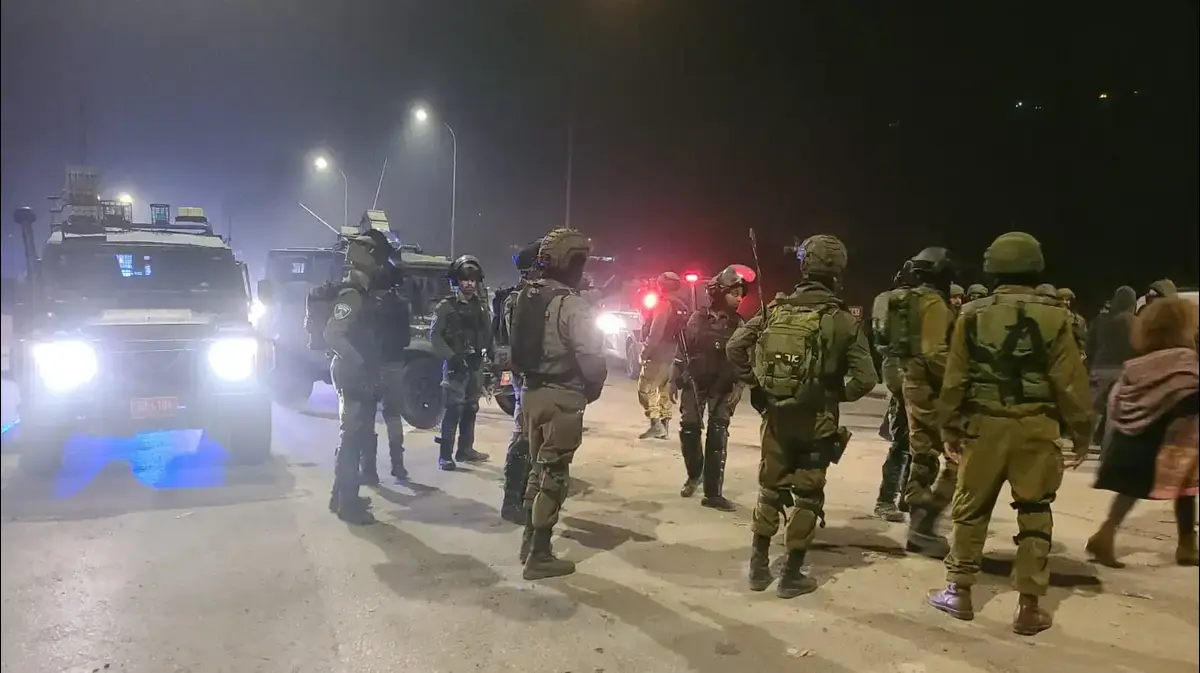Two weeks since Parliament passed the Citizenship Law, and protests do not wane • More than a thousand were arrested in the wave of protests, and 28 were killed • Prime Minister Modi walks on a tightrope • Commentary
India's Crisis Law Crisis // Photo: IP
Two weeks have passed since the Indian Parliament passed the new citizenship law, which allows for a simpler naturalization process for non-Muslim religious minorities from neighboring Muslim states, and the price of the move for Prime Minister Narendra Modi's party, and for India as a whole, continues to rise.
India: Protests against New Citizenship Law // Photo: Reuters
More on:
India: It was incited that she dared to complain about rape
11 years after the Mumbai attack: Moishi celebrates Bar Mitzvah
Power and Fear: Leaders of the Far East Decade
Pakistan: Death sentence for former President Musharraf
Data released Sunday in the country's media reveals that more than two hundred thousand tourists canceled their arrival in the country, and hundreds of thousands more have shortened their stay in the country following the country's violent protests and riots. Six countries, including Israel, even issued a travel warning for their citizens. This is billions of damage to the tourism industry in the country, one of the leading industries in the Indian economy.
Demonstrations in India around controversial citizenship law // Photo: AFP
But Modi's troubles do not end there. Last week, Modi's party, the Indian People's Party, suffered an unexpected defeat in the Jharkhand State Legislative Assembly in East India after ruling in 2014. Media outlets say the unexpected defeat is linked, in addition to the outrage over the new Citizenship Act , To the shock of the country's voters from the lynching cases committed by young Hindus in the Muslim minority, more than 20 such cases have been documented in the country over the past two years.
More than 1,000 people have been arrested in the wave of protests that swept across India following the passing of the law and 28 people, including at least three minors, have died in clashes between protesters and police. The police's violent attitude towards the protests has been criticized, even among supporters of the ruling party, which has won the most recent crushing elections.
Public outrage and immigration mine
The new citizenship law, which has become one of the biggest challenges facing Prime Minister Modi since coming into power in 2014, is essentially an amendment to the existing Indian citizenship law, which allows for a shorter citizenship path for minority people, including Hindus, Jainists, Sikhs and Christians, who come from neighboring countries. The majority is Muslim, and there is evidence of minority persecution such as in Pakistan, Afghanistan and Bangladesh.
Demolition protesters in India police vehicles // Photo: IP
Proponents of the amendment argue that the law meets the great distress of minorities in these states and states that it is in compliance with immigration laws in many states, which provide shelter for persecuted minorities. As in many cases of a fight between immigration opponents and its supporters, Modi's people point out that the right of a state to decide who can enter its gates and who is not.
The protesters and oppositionists, say the law is just another step on the path to undermine the secular government of India and an attempt to make it a "Hindu state" only. Despite these allegations, the protest itself began in eastern Assam province for entirely different reasons.
Residents of Assam, fearing for their culture and land due to an unprecedented wave of immigration from crowded and impoverished Bangladesh, oppose any amendment to the law that would allow any legal immigration into their territory. The Assam region, was the initial focus of the protest long before it spread to the capital, New Delhi, and before it entered international consciousness. The plight of Assam residents on the one hand, and the plight of the many immigrants, almost four million people, living in a country without any legal status are the fuel of great public outrage, and it is a pity that Prime Minister Modi has repeatedly failed to defuse.
Do the dots connect?
India's Muslim population numbers more than 100 million people, one of the largest Muslim communities in the world. Their political and national consciousness has shaped for decades the control of the Left Indian Congress Party, a party that at least outwardly has always maintained a common secular Indian ethos.
Modi: "The new law does not discriminate against Muslims" // Photo: Reuters
Since Modi and the "Indian People's Party" came to power in 2014, there have been repeated allegations against the Prime Minister and his party that they want to change India's image and lead a more religious and ethnic regime. One of the moves that the Prime Minister's opponents are waving, and linked to the new Citizenship Law, is the intention to run a new population census across the state.
The commander threatens millions of neighboring Bangladeshi Muslim immigrants who fear being deported back to their dense and impoverished country. This fear, backed by Muslims from all over India, joined the New Delhi Supreme Court decision last month. The decision made allows the construction of a Hindu temple on the ruins of a mosque destroyed by a raging mob in the northern state of Ayuda in 1992.
Tensions around the sacred site of both religions could culminate in violence if it does start building a temple there, something both extremist Hindu nationalists and India's big Muslim rival Pakistan, who despite the ongoing persecution of minorities in their territory, wish to portray India as a safe haven for Muslims.
All the above-mentioned moves, along with the annexation of Kashmir into India's territory and the abolition of its autonomous status, intensify for Muslims in the state on the one hand and for opponents of the ruling party, the feeling that Modi's government is doing everything in its power to realize the vision of terror and build it, step by step, India. There is no place for the Muslim minority. But do the dots really connect with the scary reality picture? Not at all sure.
While the amendment to the Citizenship Act is not directly related to the issue of the fate of Muslims in the country, the Supreme Court's decision on the temple in Ayuda is not directly related to Modi's government policy and the decision to annex Kashmir can be explained in tension with Pakistan and terrorist organizations in the region. The large protest and recent defeat for Modi at the polls prove that despite his glaring victory in the elections earlier this year, with regard to the Muslim minority and immigration issue, he is walking a very thin line.







